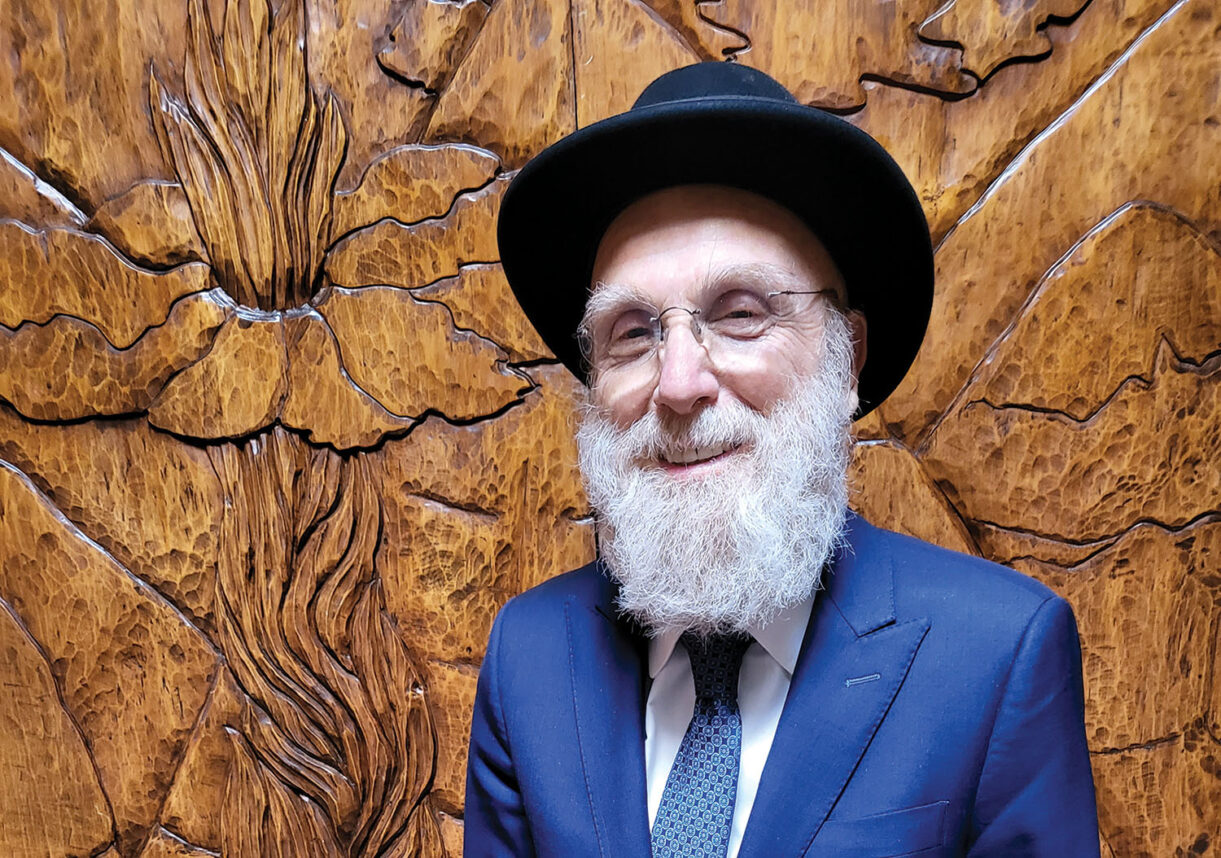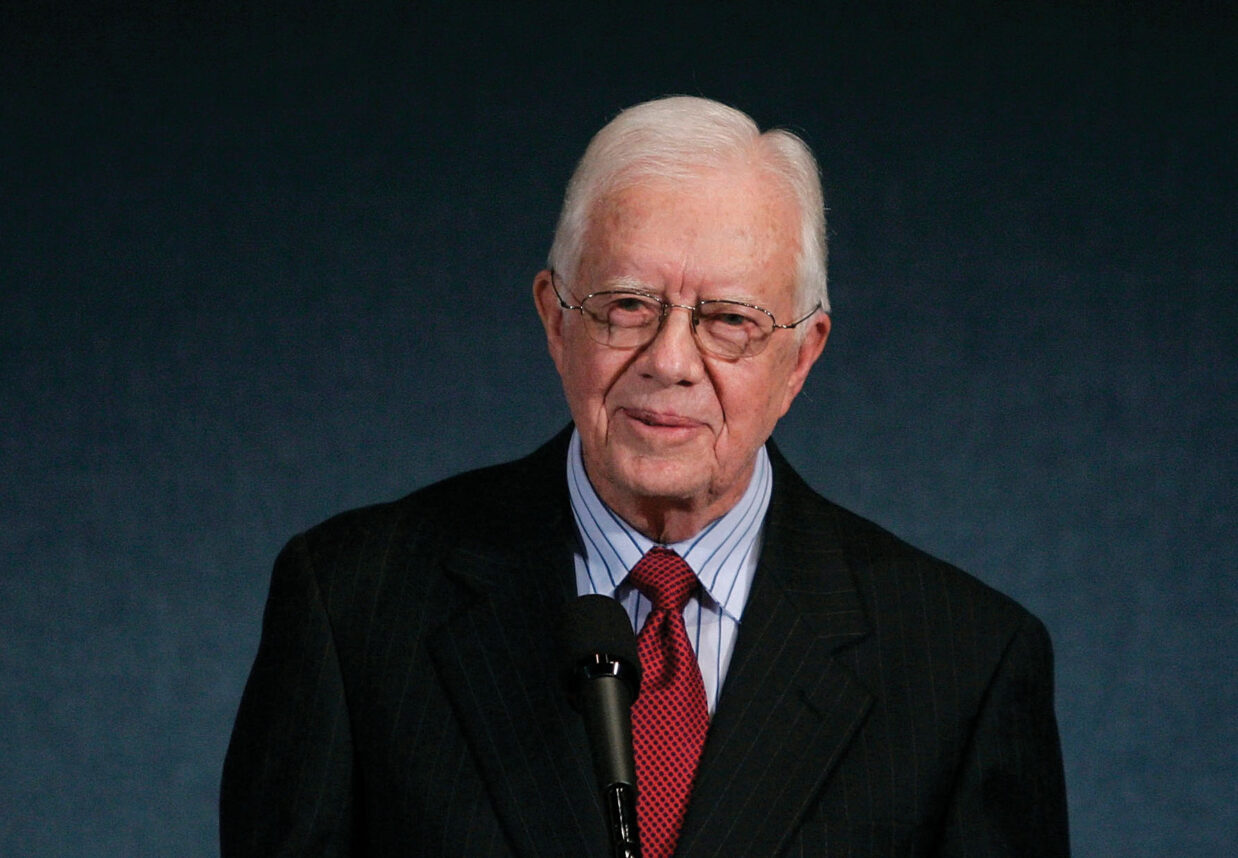Some conservatives are accusing the Anti-Defamation League of launching a partisan attack following its report asserting that a “current of anti-government hostility” has swept the United States in the year since Barack Obama was elected.
The Jewish defense organization did not respond similarly to anti-Bush hatred during the previous eight years, the conservatives have argued, and was unfairly linking mainstream criticism of the president with fringe attacks on Obama.
But the ADL said it frequently denounced extremist rhetoric during the Bush administration, and that its new report does make a distinction between everyday partisan vitriol and more problematic attacks.
“The comments are coming from people who have not read the report,” ADL spokeswoman Myrna Shinbaum said. “They’re reacting to the media spin and not its substance.”
The report, titled “Rage Grows in America: Anti-Government Conspiracies,” examines both some mainstream and more fringe expressions of anti-government anger, which it says is characterized by a “shared belief that Obama and his administration actually pose a threat to the future of the United States.”
“Some of these assertions are motivated by prejudice,” the report states, “but more common is an intense strain of anti-government distrust and anger colored by a streak of paranoia and belief in conspiracies.”
Among other things, the report cites the “tea parties,” the “Birther” movement and the disruptions of congressional town hall meetings across the country this summer—often by protesters comparing the Obama administration and the Democrats to Nazis.
The report also examines conspiracy theories circulating among anti-government extremists—including fears of the imposition of martial law and government confiscation of guns—and finds a “sudden and surprising resurgence of the militia movement” that had peaked during the mid-1990s.
The ADL charges that some in the mainstream media have played a role in promoting anti-government anger, specifically singling out Glenn Beck of Fox News as a “fearmonger-in-chief” for making comparisons between Obama and Adolf Hitler, and promoting conspiracy theories.
Beck himself responded on his Nov. 25 radio show to the ADL report and a Los Angeles Times piece that mentioned the report and compared Beck to the 1930s anti-Semitic radio broadcaster Father Coughlin.
Beck slammed the ADL, saying it was “nothing … but a political organization at this point—and it kills me to say that.”
“Name the person that has been more friendly to Israel, name the person that has spoken more to the Holocaust deniers running Iran,” Beck said.
Among the more prominent critics of the report was Commentary executive editor Jonathan Tobin, who wrote that it essentially argued that those who “merely cry that they ‘want their country back’ from the Democrats while standing outside a town-hall meeting become the thin edge of the wedge of a new threat to democracy and, by extension, a threat to the Jews.”
“By choosing to frame its report denouncing this brand of extremism in such a way as to associate all those who have opposed Obama’s policies in one way or another with the far Right, the ADL has stepped over a line that a nonpartisan group should never cross,” he said.
ADL officials said the report does distinguish between mainstream partisan attacks and more hostile rhetoric. The introduction states that for the most part, conservative politicians and media figures “eschew the conspiracy theories and more outlandish notions and tactics propagated by others. Some of their activities parallel Democratic tactics during the Bush administration. These mainstream political attacks fall outside the bounds of this report.”
The report adds that “one of the most important effects of these activists, however, is to help create a body of people who may be predisposed to believe the assertions and claims of more extreme individuals and groups.”
Republican Jewish Coalition executive director Matt Brooks argued that the ADL was disproportionately focusing on the right when there were “equally troubling and disturbing actions on the left.” Brooks cited U.S. Rep. Alan Grayson (D-Fla.) for comparing the U.S. health care system to the Holocaust and Rep. Brian Baird (D-Wash.) for comparing town hall attendees to “brownshirts.”
The ADL did send a letter to Grayson taking issue with his remarks, but Brooks argued that the organization should have called on Democratic leadership to denounce the remarks—as it did for the Republican leadership when some spoke at a Tea Party rally featuring two signs comparing Obama health care proposals to Nazi Germany.
“ADL really should ensure that they’re treating proportionately the actions on both sides,” Brooks said. “People look to them to be nonpartisan.”
Other conservative commentators have argued that the ADL never put out a similar report on anti-Bush hatred.
The ADL did not release a formal “report” decrying inflammatory criticism of President George W. Bush, but it did issue a well-publicized statement in 2004 slamming MoveOn.org for allowing a 30-second advertisement comparing Bush to Adolf Hitler to be posted on its Web site as part of a contest. This summer, liberal bloggers pointed to that statement in urging the ADL to condemn statements from the right comparing Obama to Hitler.
The ADL also frequently criticized the anti-Israel and anti-Semitic signs and sentiments at anti-war rallies sponsored by the far-left group ANSWER during the Bush administration, and a lengthy chronology documenting what went on at its events appears on ADL’s Web site. The ADL also has released two reports on 9/11 anti-Semitic conspiracy theories that emanate from both the left and the right.
National Jewish Democratic Council executive director Ira Forman said he was glad to see the ADL “do the right thing” and that the organization was doing its job as a nonpartisan organization.
“The ADL made the distinction that not every Republican elected official is the same as the Tea Partiers, but they did say there was a responsibility” for those on the right to disassociate themselves from that inappropriate rhetoric.





















 More news and opinions than at a Shabbat dinner, right in your inbox.
More news and opinions than at a Shabbat dinner, right in your inbox.